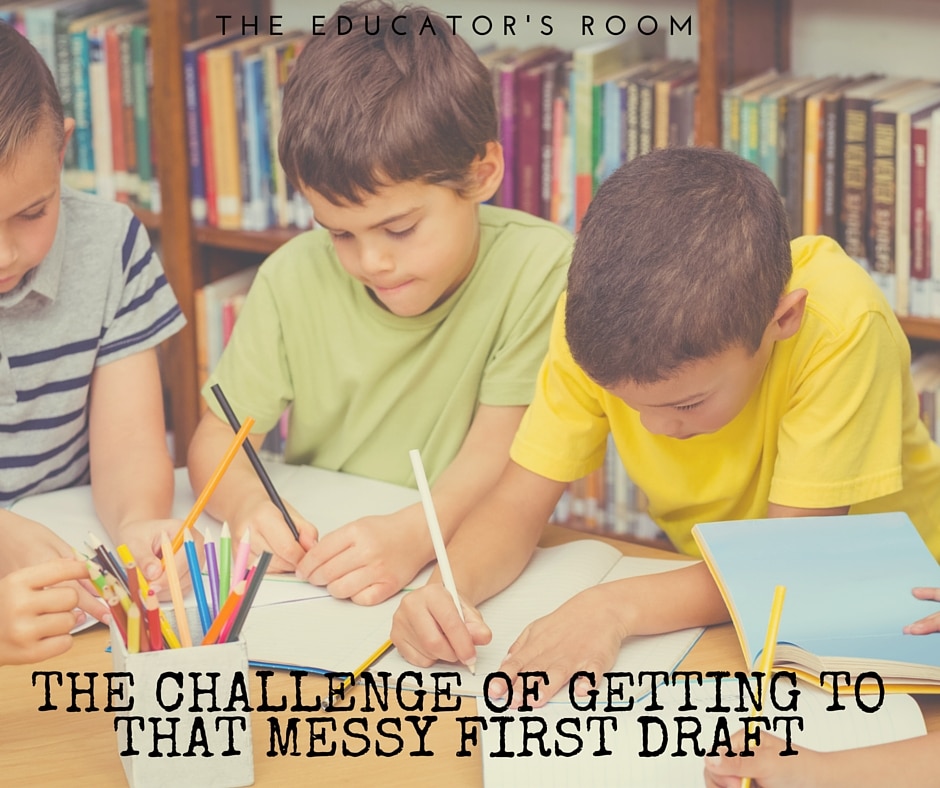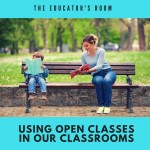She had been staring at her screen for fifteen minutes. My students were supposed to be writing the first draft of a literary analysis essay, but Jamae was clearly not making progress. When I initially saw her struggling, I asked if everything was OK. She just nodded and kept staring, so after a few minutes more I asked if I could help.
“I don’t know if I need a comma here.”
That was it. A comma. A simple comma had kept my student from writing for fifteen minutes. She’s not alone. I’ve found that many students freeze when they can’t remember a simple grammar rule or can’t word something just right, even on a first draft. My response is always the same.
“It’s your first draft. Don’t worry about it. Just keep writing.”
I don’t say this because I feel that commas aren’t important, I say this hoping to get them to turn off the self-editor, at least until a draft is on paper. In writing, revision is where the learning happens. It is where students analyze what they have done and figure out how to make it better. But none of this can happen without the rough ball of clay waiting to be shaped: the messy first draft. However, I find that there can be a real challenge in getting that draft to happen. Students hem and haw; they slowly pluck out a paragraph or two or they simply hunker down and wait it out, avoiding revision and quickly creating a draft to submit on the final due date. I suspect this happens for one of two reasons:
- A fear of having a teacher or classmate read something riddled with mistakes, thinking that they will be chastised.
- An unwillingness to write multiple drafts, thinking that getting it “right” the first time will save them work.
Neither of these is easy to get over, and both prohibit students from engaging in the revision process, which is, to me, the most important part of learning to write. Our current climate doesn’t help. High-stakes state tests give timed prompts. Students may have enough time for a bit of revision, but overall are expected to write something passable quickly. They are taught that writing is about speed and pressure instead of careful crafting.
In my attempts to engage students, I have used punitive measures, things like attaching 1/3 of the possible points to early drafts and refusing to accept a final draft if there have been none before it, and while these measures might help prompt multiple drafts, they don’t necessarily encourage the students to engage in revision in a meaningful way.
One thing I have found helpful is introducing the workshop method through poetry at the beginning of the year. In poetry, the rules of grammar are a little more fluid and flexible, helping those who worry about doing it “wrong,” and as it is a shorter form, poetry makes creating multiple drafts seem less imposing. As an added bonus, poetry allows a platform on which we can play with techniques like repetition and figurative language, which will serve us in essay writing as well.
Beyond that, I have found success in giving targeted skills lessons between drafts then having students revise and highlight changes and additions. I have also switched to giving the majority of my feedback during the drafting process rather than on a final draft, and I have enlisted the help of online services like turnitin.com (our school has a subscription) and Google Apps (no paid subscription required) where students can submit and track multiple drafts.
Even with all of this, I find for some students, just getting out that initial messy draft is still a challenge. I remind myself to be patient, because in this process, students are vulnerable. They have to trust that those who see a rough effort have their best interests at heart and will not ridicule or criticize. In order for them to feel safe, I have to foster an environment where students believe they are part of a community of writers. For me, this means continual positive and constructive feedback throughout, and for peer editors, it means a reminder to always find the good before looking for areas in need of attention. It means celebrating each other’s successes and making my own process transparent, allowing students to analyze and critique my work as I write along with them.
Through all of this I have learned that like all other aspects of education, there is no one quick fix for this challenge. I will need to continue to take a multi-directional approach as I keep looking for strategies that excite and engage my students in this integral part of the writing process and hope to get to a point where a simple comma will not stop a young writer in her tracks.






